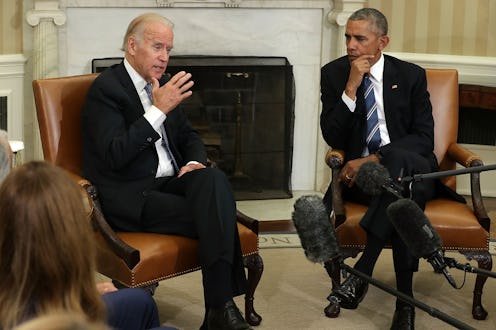News
The VP Is Crucial To A President Being Elected
With less than three weeks to go before the end of the 2016 election cycle, its only natural to ponder questions about the political process itself, questions such as, can a president be elected without a vice president? What if the most beloved or qualified politician running for office just can't make up their minds about a vice presidential running mate. Are they then forced to give up their opportunity to run the free world? The answer is complicated. Essentially yes, they need a VP before going into office. But there's a catch: They aren't technically forced to pick one themselves.
While there have actually been four presidents who served without vice presidents for their entire term, all four of them were former vice presidents who were elected into office after the president died. During the course of the last century in U.S. government, the vice presidential candidate has been picked by the presidential candidate shortly after they receive the nomination. The two have acted as a politically-aligned team, with the explicit understanding that if the president dies, the VP will take the mantle.
However, this wasn't always the case. It wasn't until the 12th Amendment was ratified in 1804, that the position of politically aligned vice presidents as we know it was hearkened, as well as the voting power of the electoral college. And just think — if it weren't for the changed system of presidential candidates picking their vice presidents, we wouldn't be blessed with so many Biden and Obama photo shoots.
Circling back to the original question at hand — no, a president can't get elected today without a vice president. In the rare case that a presidential candidate refuses to pick a running mate (or has a difficult time narrowing down the options), the electoral college is given the responsibility of voting and picking the vice president. Given the fact that the vice president holds little political power outside of their proximity to the president, it makes sense for presidential candidates to pick running mates they respect and enjoy being around, rather than outsourcing that task to the electoral college.
In conclusion, a presidential candidate can run for and accept office without picking a vice presidential candidate. However, a vice president will in fact be elected to office, so they may as well buckle down and pick someone they want to spend between four and eight years with.
